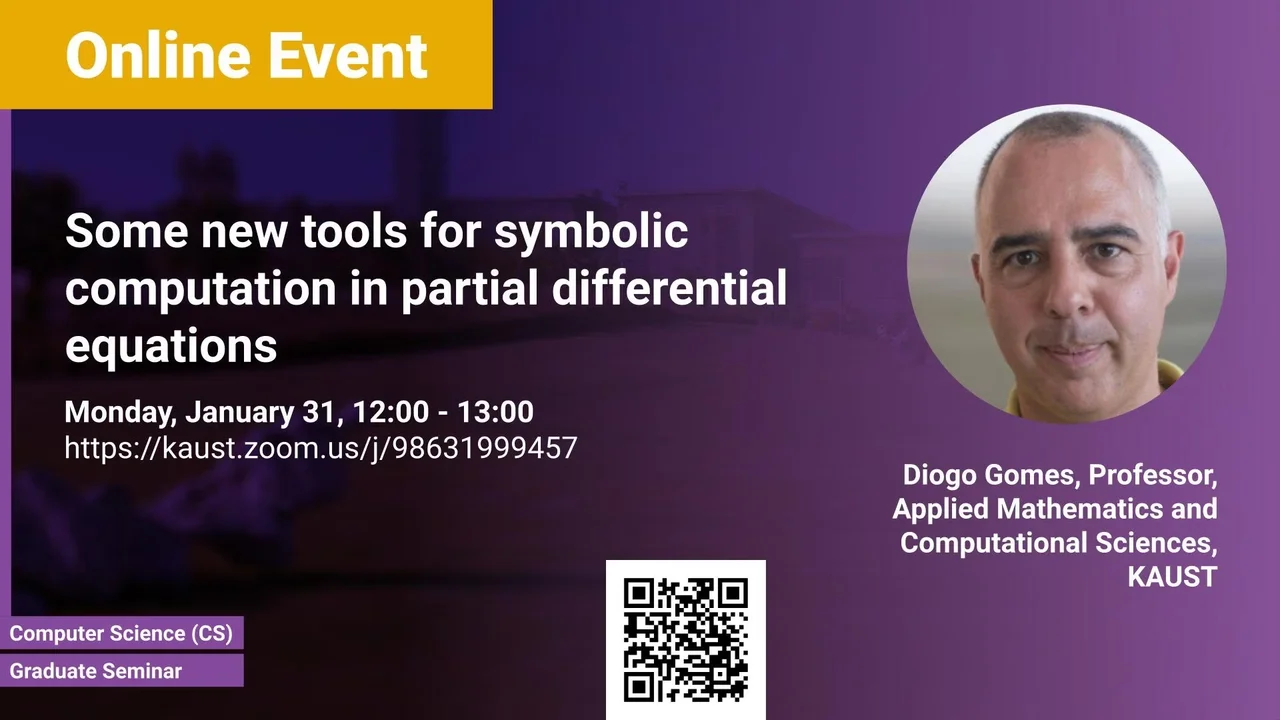
New tools for symbolic computation in partial differential equations
The qualitative study of PDEs often relies on integral identities and inequalities. For example, for time-dependent PDEs, conserved integral quantities or quantities that are dissipated play an important role. In particular, if these integral quantities have a definite sign, they are of great interest as they may provide control on the solutions to establish well-posedness.
Overview
Abstract
The qualitative study of PDEs often relies on integral identities and inequalities. For example, for time-dependent PDEs, conserved integral quantities or quantities that are dissipated play an important role. In particular, if these integral quantities have a definite sign, they are of great interest as they may provide control on the solutions to establish well-posedness. Finding these integral identities and inequalities is a tedious task that relies on a combination of heuristics and skill. However, as we will see in this talk, finding conserved and dissipated quantities for PDEs is an algorithmic task that can be automated. We will discuss some ongoing progress in this area, the key tools used (exact linear algebra, calculus of variations, and quantifier elimination methods) and present some applications to the theory of mean-field games. We will also address semi-discretization of partial differential equations and how our methods can be used in these problems.
Brief Biography
Diogo Gomes received his Ph.D. in Mathematics from the University of California at Berkley in 2000. He did postdoctoral studies at the Institute for Advanced Study in Princeton and at the University of Texas at Austin. Before joining KAUST, he was a Professor in the Mathematics Department at the Instituto Superior Tecnico. His research interests are in partial differential equations (PDE), more specifically in mean-field games and related models.
